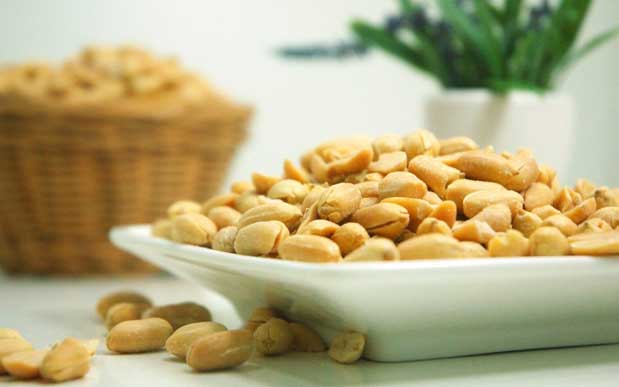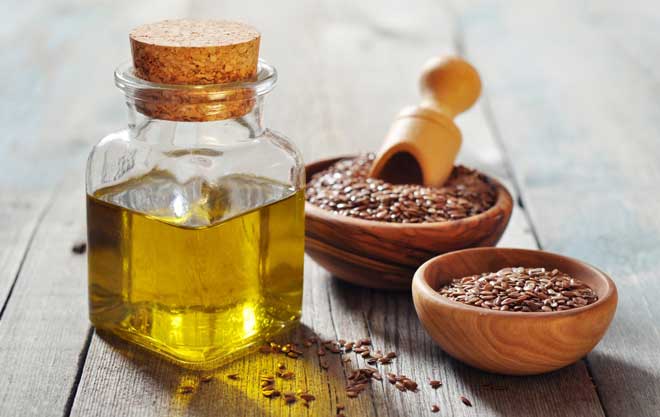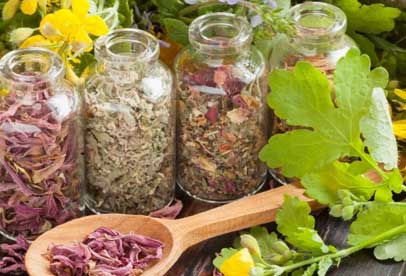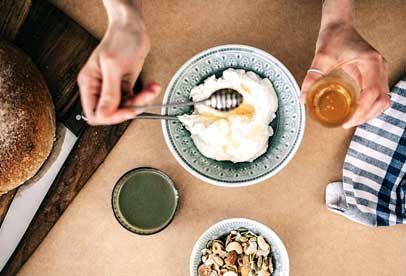
How to prevent peanut allergies in children?
About six million young children in the U.S. suffer from food allergies?most commonly to peanuts. Pediatricians and allergy experts once agreed that the best solution was to avoid peanuts altogether, and for years, the American Academy of Pediatrics (AAP) advised pregnant women with peanut allergies to stop eating peanuts while pregnant and to not feed peanuts to their children when they started on solid foods.
That changed in recent years, when two major studies proved that advice wrong. In one, the rate of peanut allergies was about 10 times lower for children who ate peanuts from an early age, compared to kids whose parents avoided giving their infants peanuts. Then, a rigorous trial in which young children were assigned to either eat peanuts early or avoid them showed again that kids who were introduced to peanuts when young had up to an 80% lower risk of developing peanut allergies than those who were not.
Based on those results, the AAP changed its advice for pregnant women about avoiding peanuts, recommending instead that women not avoid any particular groups of foods in the hopes of protecting their children from allergies. Now, the National Institutes of Health′s National Institute of Allergy and Infectious Diseases (NIAID) has issued new guidelines to help doctors and parents adopt this new thinking. The advice, for introducing peanuts to infants in order to prevent peanut allergies, appears in the Annals of Allergy, Asthma and immunology as well as on the NIAID website.
The recommendations provide guidance about how to safely introduce young children to peanuts from an early age. If babies are already allergic to eggs, or have severe eczema that doesn′t respond to treatment, they are considered at high risk of developing a peanut allergy, since their immune systems are already primed to be sensitive to certain allergens. For these babies, the guidelines recommend introducing peanuts at about four to six months, just as a baby is transitioning to solid foods. To make sure they don′t have a severe reaction to the peanuts, the panel advises that the peanuts be given in the doctor′s office.
For the other two groups?babies with mild to moderate eczema, and those without any known allergic reactions′the guidelines say that parents can introduce peanuts gradually at home, beginning at six months. (The guidelines also include recipes for the best type of peanut foods to use; whole peanuts aren′t appropriate for infants, since they can be a choking hazard.)
The hope is that by introducing peanuts early enough to children who might be allergic to them, doctors may be able to prevent them from ever developing a full-fledged allergy. While it′s not entirely clear how that happens, some kind of tolerance is likely involved. Just as babies can be trained to recognize that hot stoves are dangerous, so too can their immune systems be educated to see peanut proteins as harmless rather than as threats.
If such tolerance starts to reduce the number of new cases of peanut allergy, that could save millions of dollars in health care costs for treating children for allergic reactions, as well as the anxiety and stress of potentially life-threatening allergies. ?We anticipate that if this works as well as we think it will, it will drop not only the incidence and prevalence of peanut allergy, but also the host of problems that come with having a food allergy,? says Dr. Matthew Greenhawt, an assistant professor of pediatrics at Children′s Hospital of the University of Colorado, and chair of the food allergy committee of the American College of Allergy, Asthma and Immunology. ?Food allergies are associated with a poor quality of life, high cost to the patient and society, fear, anxiety and self-imposed restrictions. By preventing the allergy we also prevent this whole host of adverse things that accompany having a food allergy.?
The guidelines may take some getting used to, since they represent a significant change in the way doctors have previously handled peanut allergies. For one, the new advice does not use family history of peanut allergies as a criterion for whether an infant might be at high risk. Instead, it relies on the infant′s own reactions to egg and the presence of eczema. The guidelines also require specialists to spend more time, at least at the beginning of an infant′s care, to introduce peanut to the diet. But that time spent up front could save more later on, if that child does not develop an allergy and won′t need the years of medical care associated with it.
?I?m fired up about these guidelines; it′s something we can do to change the face of food allergy,? says Greenhawt. ?If we can prevent tens of thousands of kids from developing peanut allergy, we have to pounce on that opportunity.?
Related News

Study finds dramatic weight loss can be achieved WITHOUT counting calories

10 Ways To Use Sesame Oil For Beautiful Skin

7 Healthy Hacks for Your Pumpkin Spice Latte

The best effective and natural plants for a good memory

Is This the Best Diet for Post-Menopausal Women?

Healthy food that tastes good too

Dandelion Benefits Biodiversity, Soil and Your Health

Do you want to be paid for sleeping well at night?
Most Read
★Face Scrubs and Face Packs
★A Beginners Guide to Sun Salutations
★10 Benefits Of Climbing Stairs ? An Underdog In The World Of Fitness
★How you should wash your face?
★Top 10 Unknown Beauty Tips and Tricks
★Top Foods for Calcium and Vitamin D
★15 Kitchen Herbs and Spices with Powerful Health Benefits
★7 Healthy Hacks for Your Pumpkin Spice Latte
★Five foods that can cause problems if consumed on an empty stomach!
★Eat more fruit and veg for a longer life
★This One Exercise Helps You Become a Better Runner
★Fresh fruits and veggies arent always healthier than frozen, scientists say
★Growing Propagating and Using Aloe Vera
★Popular weight loss strategies
★Just ten minutes of play a day can help children reduce their risk of developing heart disease and diabetes later in life
★9 Food Habits To Keep Eating To Lose Weight
★Yoga Poses for People with Less Flexible Body
★Correlation Between Almonds and Weight Gain
★Study finds dramatic weight loss can be achieved WITHOUT counting calories
★How to Gain Weight in 7 Days to Get Rid of the Skinny You
★Ways to Use Honey for a Glowing Skin
★Weight-lifting and protein shakes rich in growth hormones may make you bald
★5 surprising beauty benefits of amla
★Brain health food guide for older adults
★The Best Breakfast Foods for Weight Loss
★5 DIY masks for your various hair concerns
★Fasting might be good for your healh, research says
★Everyday Medications You Should Never Take When You Exercise
★Whole-body vibration may be as effective as regular exercise
★5 foods for healthy skin
★The best effective and natural plants for a good memory
★Using Kalonji Seeds for Weight Loss
★Teenagers use social media posts to appear attractive to friends
★Daily consumption of tea protects the elderly from cognitive decline
★Those who consume fruit and vegetables have a 40% lower risk of an incurable lung disease
★How to Make Elderberry Syrup
★Eating Carbs and Fats Before a Workout? Read This
★Why most people use emotional words to persuade others
★How to exercise outdoors, when the smogs a killer
★The amazing and healthy benefits of meditation!
★Pasta eaters may have better diet quality: study
★Working It Out: The future of work and digital
★Medication Management Tips
★This is how many calories your tea and coffee habit is adding to your diet EVERY DAY
★5 Effective Baba Ramdev Yoga Asanas To Increase Height
★4 Superfoods for a Healthy Looking Skin
★8 Practical Tips to Lose Weight Without Dieting
★Guinness World Record for bearded woman Harnaam Kaur
★Study reveals alarming dangers of anti-ageing jabs
★23 foods that contain NO calories
